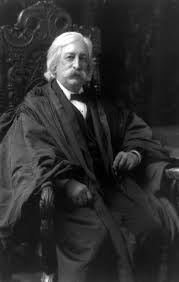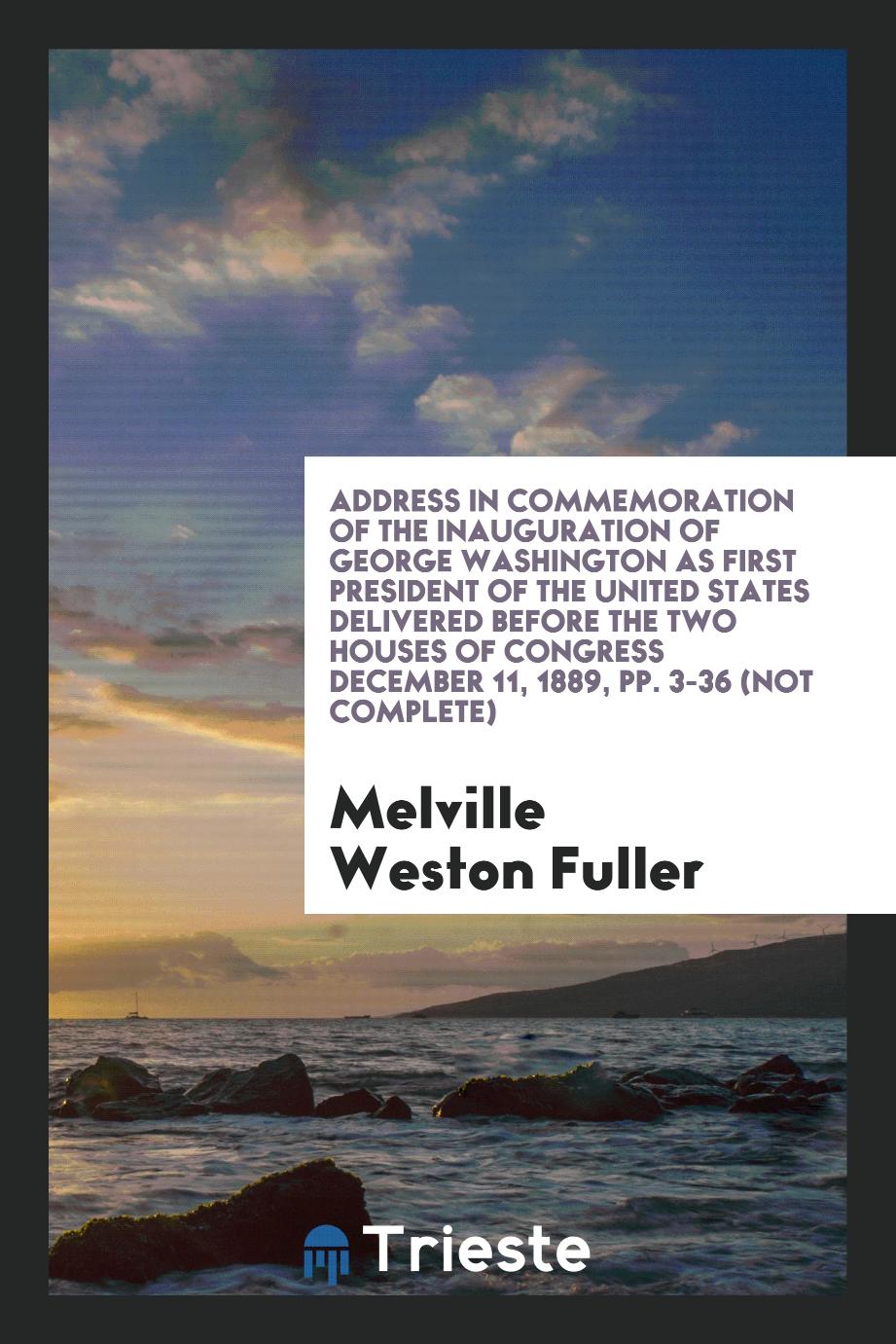
Melville Weston Fuller
Melville Weston Fuller (February 11, 1833 - July 4, 1910) was a politician, lawyer, and judge from Illinois. He was the eighth Chief Justice of the United States from 1888 to 1910. Born in Augusta, Maine, he established a legal practice in Chicago after graduating from Bowdoin College. He also served as a newspaper editor and managed Democrat Stephen A. Douglas's campaign in the 1860 presidential election. During the Civil War, he served a single term in the Illinois House of Representatives, and political opponents would later claim that he was an anti-war Copperhead. Fuller became a prominent attorney in Chicago and was a delegate to several Democratic national conventions. He declined several appointments offered by President Grover Cleveland before accepting the nomination to succeed Morrison Waite as Chief Justice. Despite some opposition to the nomination, Fuller won Senate confirmation in 1888. In 1893, he declined Cleveland's offer to serve as Secretary of State. He served as Chief Justice until his death in 1910. As Chief Justice of the Fuller Court, he presided over several important cases. In Plessy v. Ferguson, the court articulated the doctrine of separate but equal and upheld Jim Crow laws. His opinion in Pollock v. Farmers' Loan & Trust Co. struck down the federal income tax provision of the Wilson-Gorman Tariff Act. The decision was later superseded by the Sixteenth Amendment. Fuller's opinion in United States v. E. C. Knight Co. narrowly interpreted the Sherman Antitrust Act, making government prosecution of antitrust cases more difficult.
